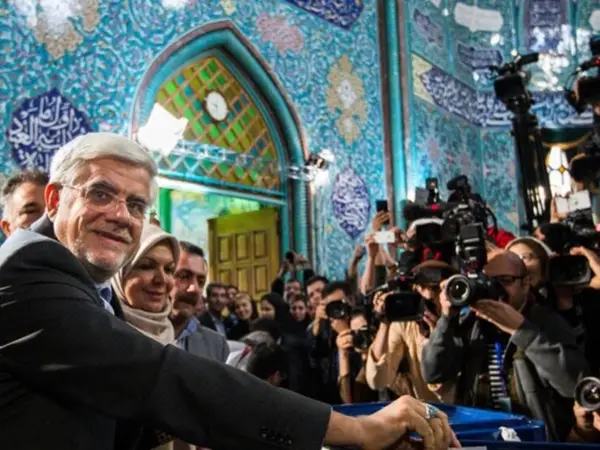Same time last year, a month before the June 2021 presidential election, Iran's 'reformists' were still hopeful that one of them might win the election.
It took them only a few days to find out that that the Guardian Council, or in other words Supreme Leader Ali Khamenei, has other plans for the country's future.
The Council under Khamenei’s supervision rejected almost all reformist and even moderate-conservative candidates, all but ensuring the election of the preferred hardliner candidate, Ebrahim Raisi.
Although two of the final candidates, former Central bank Governor Abdolnasser Hemmati and former Governor General of Khorasan Province Mohsen Mehralizadeh, liked to be characterized as "reformist," few politicians, let alone voters would recognize them as such. Some reformists even thought about forming coalitions with moderate conservative figures such as dormer Majles (parliament) Speaker Ali Larijani and former lawmaker Ali Motahari.
Today, after a year, some of them still occasionally get some press coverage while some others are absolutely silent and do not wish to be remembered as former candidates.
The reformists' first choice for the post, former Foreign Minister Mohammad Javad Zarif never registered as a candidate. Since then, he has been seen at two Ramadan banquets at the Presidential office and Khamenei's headquarters. Currently, he teaches at the University of Tehran and his political career appears to have come to an end after he charged in a leaked tape in April 2020 that former Qods Force Commander Qasem Soleimani got his orders from Russia.
One of the most likely candidates, former Vice President Es'haq Jahangiri who lost his popularity after his brother was indicted and jailed for financial corruption, became a target of attacks by hardliners in the new government and Majles who blamed him for economic problems. He never became a candidate either.
Former deputy interior minister Mostafa Tajzadeh was extremely vocal against the government ahead of the election and welcomed by younger reformists. However, at the end, he decided that neither him nor anyone else should run for president in protest to the Guardian Council's unilateral and widespread disqualification of pro-reform candidates.
Massoud Pezeshkian, a lawmaker from Tabriz and a vocal critic of former President Hassan Rouhani and Raisi, was disqualified by the Guardian Council. He currently runs Ensaf News website.
Mohammad Reza Aref who was harshly criticized for his aloofness and silence as the leader of the reform faction in the previous Majles, did not run and has kept silent after the 2021 election. Mohsen Hashemi, the chairman of Tehran City Council, appears to have quit his political career and is currently editing his father’s, former President Akbar Hashemi Rafsanjani's memoirs. Last week he complained that the Culture Ministry has censored a large part of the latest volume.
Mostafa Kavakebian, the leader of the very small reformist party Mardom Salari, continues publishing his newspaper under the same name but appears undecided between criticizing Raisi or appeasing him in the hope of receiving some favors.
Regardless of strict opposition by clerics and hardliners to women running for president, former vice presidents Shahindokht Molaverdi and Zahra Shojaee were nominated for the post but were disqualified by the Guardian Council. Molaverdi currently works as a notary public and Shojaee is in bed with cancer. Both were active in trying to expand women’s rights.
Mohammad Sadeq Kharrazi, a relative of Khamenei, a former senior diplomat and the leader of Neda Party has quit politics without any explanation.
However, part of the reform camp, mainly right of center Kargozaran Party, does not seem to be affected by disillusionment and despair. As the party's leader Hossein Marashi has said in a recent interview: "We know that there are limitations, but there is no way for us other than political struggle." Marashi is famous for his motto: "Reforms are dead, long live the reforms!"
